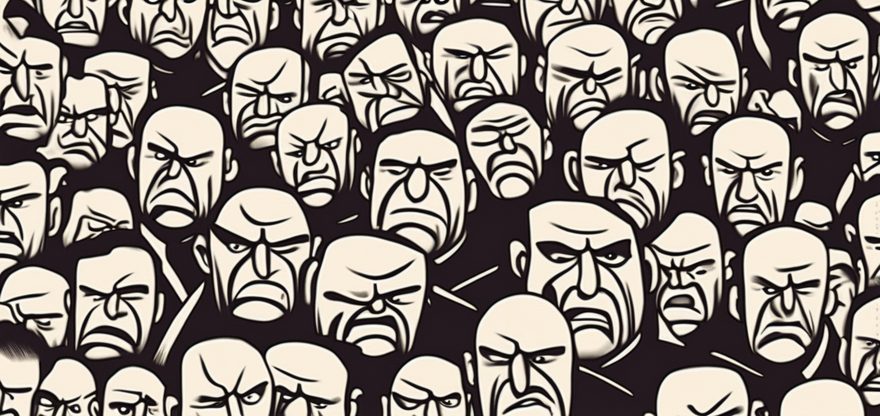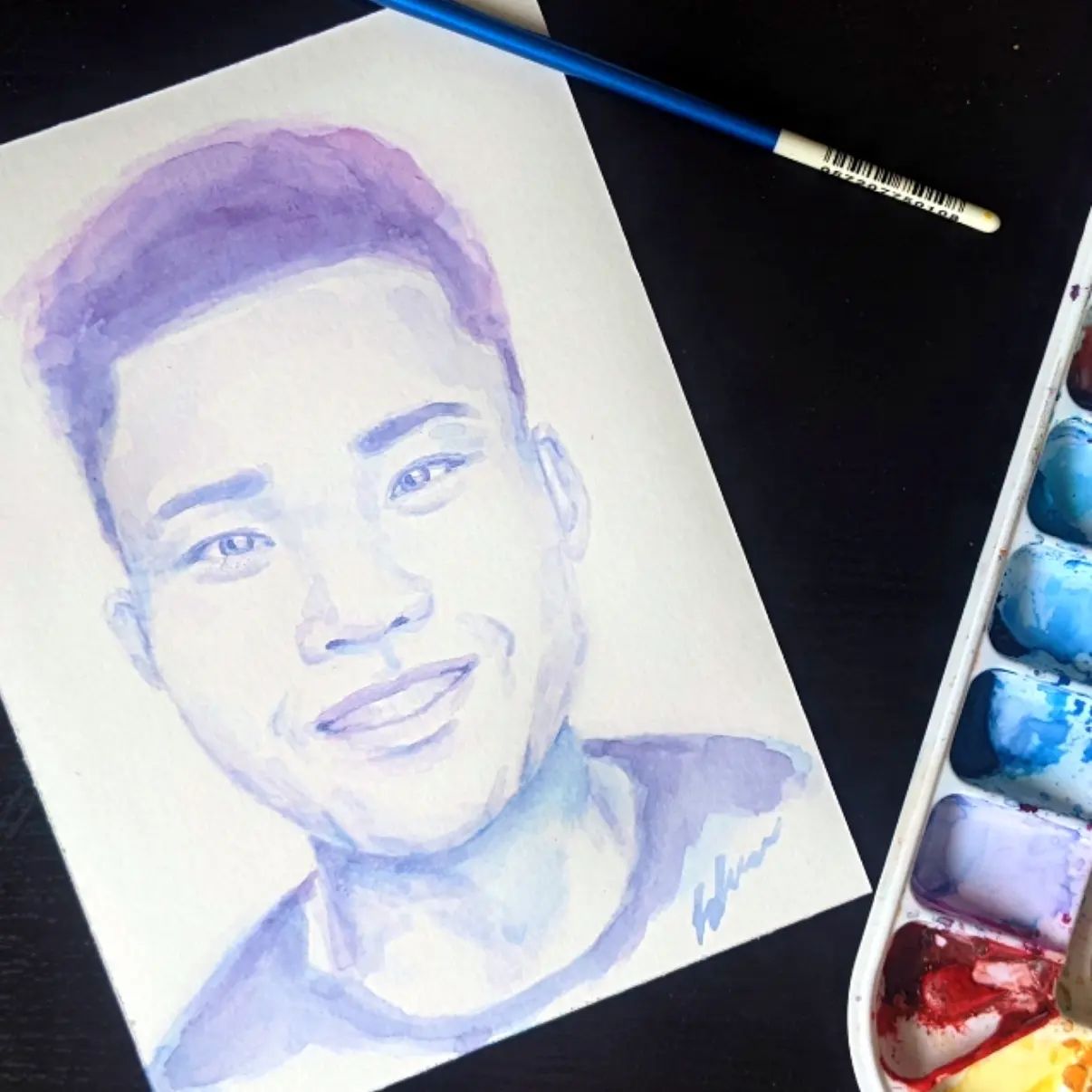How the Left Failed Men
- 6 mins
In previous years, we witnessed the explosive rise of online advice from figures like Jordan Peterson. Even before 2018, the release of Peterson's book, "12 Rules for Life," brought attention to individuals like Elliot Rodger, who spotlighted incels and modern misogyny. Culturally, we've been immersed in terms originating from that subculture, such as alpha, beta, hypergamy, and the manosphere. Fast forward to 2022, a year where the general public might have been exposed to influencers like Andrew Tate, especially after he faced investigation for sex trafficking. Interestingly, he even became the most searched person for a while in 2022, surpassing figures like Trump, Musk, and Jenna Ortega. Influencers like Tate have always existed, but it seems like a recent phenomenon where the right has won the culture war concerning male self-help.
Andrew L. Yarrow's op-ed on this issue perfectly sums it up:
"Many on the right have drawn attention to men's problems — some thoughtfully, but more often to bash feminism and women. Many on the left are silent because they are implausibly unaware of such issues or, more likely, less willing to highlight them because doing so would be deemed politically incorrect."
The right has been vocal about men's issues, often presenting factually correct statistics about male suicide. However, their message becomes infused with incel rhetoric, placing the blame for men's failures solely on the rise of feminism. Consequently, activists on the left tend to avoid discussing male issues, fearing association with right-wing men's activists. There are various reasons for this self-censorship on the left, with groupthink being one of the prominent factors affecting both sides of the spectrum. Additionally, the left tends to have stricter moral boundaries, viewing any deviations as unforgivable offenses.

I don't think it's surprising that loneliness is a significant factor driving men towards desperation and radicalization. Tirkkonen and Tietjen describe the weaponization of loneliness: "However, rather than questioning this ideal, they present a radicalized – misogynistic, heteronormative, racist, ableist – version of it. Incels politicize their own loneliness, using it to justify and consolidate their misogynistic worldview."
They conclude that the politicization of loneliness isn't necessarily a bad thing; subjects can be politicized to find meaningful solutions, but they can also be politicized for weaponization. Influencers like Tate can easily sell solutions when there's a readily identifiable target or opponent. Our minds are hardwired to identify threats, making external attribution bias effectively blame feminism. Feminism becomes an easy target for these individuals. To be clear, this is not to say that all men's issues are solely products of individual shortcomings or internal factors. We, as people on the left, need to acknowledge that the system is not entirely designed for men either. We already recognize this when we discuss toxic masculinity in relation to unrealistic male standards on mental health, so we should further explore this topic.
Giving Ammunition to the Right
Yes, the system is designed for white hetero cisgender males, and we can't deny that fact. However, it's also okay to admit that some men are suffering and struggling with their identity. We should not be afraid to say this, just because it echoes the arguments used by right-wing male activists. Additionally, there's a common belief on the left that all men inherently benefit from male privilege. While there is intersectionality for trans or non-white men, this remains a consensus. But the truth is, men hold varying degrees of male privilege.
Unfortunately, this is not the message a poor white man in the middle of rural Texas wants to hear. Leftists have provided ammunition to right-wing ideologues, who then galvanize young, lonely, and often white men into their community. Destiny, a left-wing streamer and political commentator has often brought up the point that the left has been relatively successful at empowering other marginalized groups, but they seem to have left men on the sidelines. It may be easy to blame this on priorities, but it seems that emotions have also played a role. It's not easy to feel empathy for those who have been oppressors in the past (and also currently).
It's fair to acknowledge cultural apathy towards men. They have been both the power holders and the oppressors throughout history. Perhaps, this is a reflection of their loneliness and cultural isolation. This is not to point fingers at women for letting men fall through the cracks; it's more about masculinity that has run its course. We can even call it "late-stage masculinity," similar to "late-stage capitalism." Referring to Connell's four stages of masculinity, this outcome is a result of hegemonic masculinity running rampant, leading to the subordination and marginalization of other men who don't conform to the norm. Figures like Tate wish to return to hegemonic masculinity because of the privileges it affords. However, in doing so, they have increased cultural polarization and dug men into a deeper hole, a hole that no one seems willing to help them out of. This hole has become so deep and filled with suffering that men seem to vanish within it.
We are now starting to see the extent of this hole, as numerous people, especially men, have fallen into it. It's no longer just a hole; it's filled with countless figurative corpses. We now witness the aftermath of echo chambers and alt-right rabbit holes propagated by social media algorithms. Few, apart from sociologists and other experts, might have predicted this outcome.

Loneliness
The cultural isolation men experience is a reflection of their loneliness. Studies on gender and loneliness have produced mixed results, but recent research shows that men, especially younger men, report more loneliness than women. However, engaging in the "oppression Olympics" about who is lonelier is not particularly useful, especially considering the challenging times we've all experienced due to the pandemic and recent events. Instead, what matters is how each gender has reacted to this loneliness epidemic.
As someone willing to criticize the left, I admit I may also be part of the problem. I've often argued that the left is politically ineffective due to infighting. However, what sets this issue apart from most infighting is that I'm willing to accept some blame. It's an area where we all could have done better. If we had foreseen the issues that arose in 2019-23, we would have undoubtedly adjusted our messaging. Perhaps phrases like "toxic masculinity" and academic jargon such as "white privilege" haven't been as effective as we'd hoped. Or maybe we should have done a better job at explaining these phrases in more relatable terms.
Echo Chambers
In this moment, I find an opportunity to be critical of the left while also practicing patience. I must be patient with my fellow leftists and also with other men who are going through challenging times. Digital algorithms have made it increasingly arduous to discern truth from reality, and there's a touch of irony in this statement when considering Tate's accusations about the hidden truth within the matrix. Nonetheless, we find ourselves engulfed in an era of epistemic crisis, where capitalism and the commodification of data further exacerbate the issue. It's high time for the left to acknowledge that we could have handled things better. But let me be clear, this doesn't mean that women should rise up to save men. We mustn't burden women with the responsibility of correcting men's behavior or microaggressions. Instead, it is incumbent upon men on the left to step up and model good behavior while challenging the rhetoric that emanates from the manosphere community. Public figures like Destiny have been breaking echo chambers by appearing on shows such as Fresh N Fit and Whatever Podcast. And regardless of whether their opinions fully align with ours, progressives should support them if we want to maintain our competitiveness in this cultural battleground.
Thankfully, there are others who have emerged to provide more guidance on men's mental health issues, such as Dr. K from HealthyGamerGG. In recent years, prominent left-leaning streamers have gained prominence as well. However, it is unfortunate that they arrived after prominent conservative YouTubers like Sargon of Akkad, Paul Joseph Watson, Steven Crowder, and many others had already established a monopoly on political commentary on YouTube. Nevertheless, it's better late than never, and we are now witnessing some pushback against these right-wing ideologues.
Note: Concordia University offers an online course called "Hate to Hope" for workshops and resources to prevent online radicalization. Additionally, they provide exceptional instructional materials for teachers and mentors.

